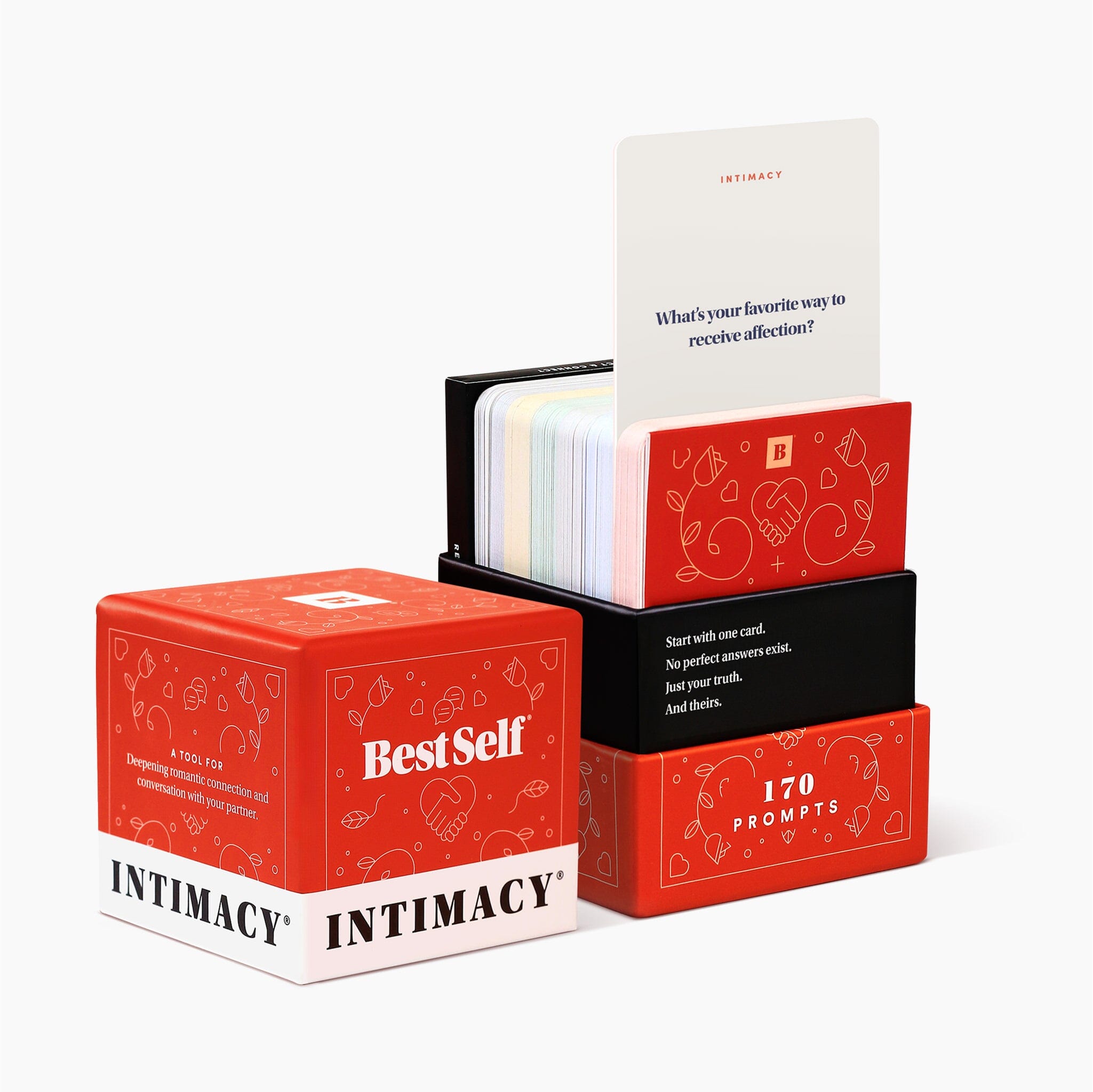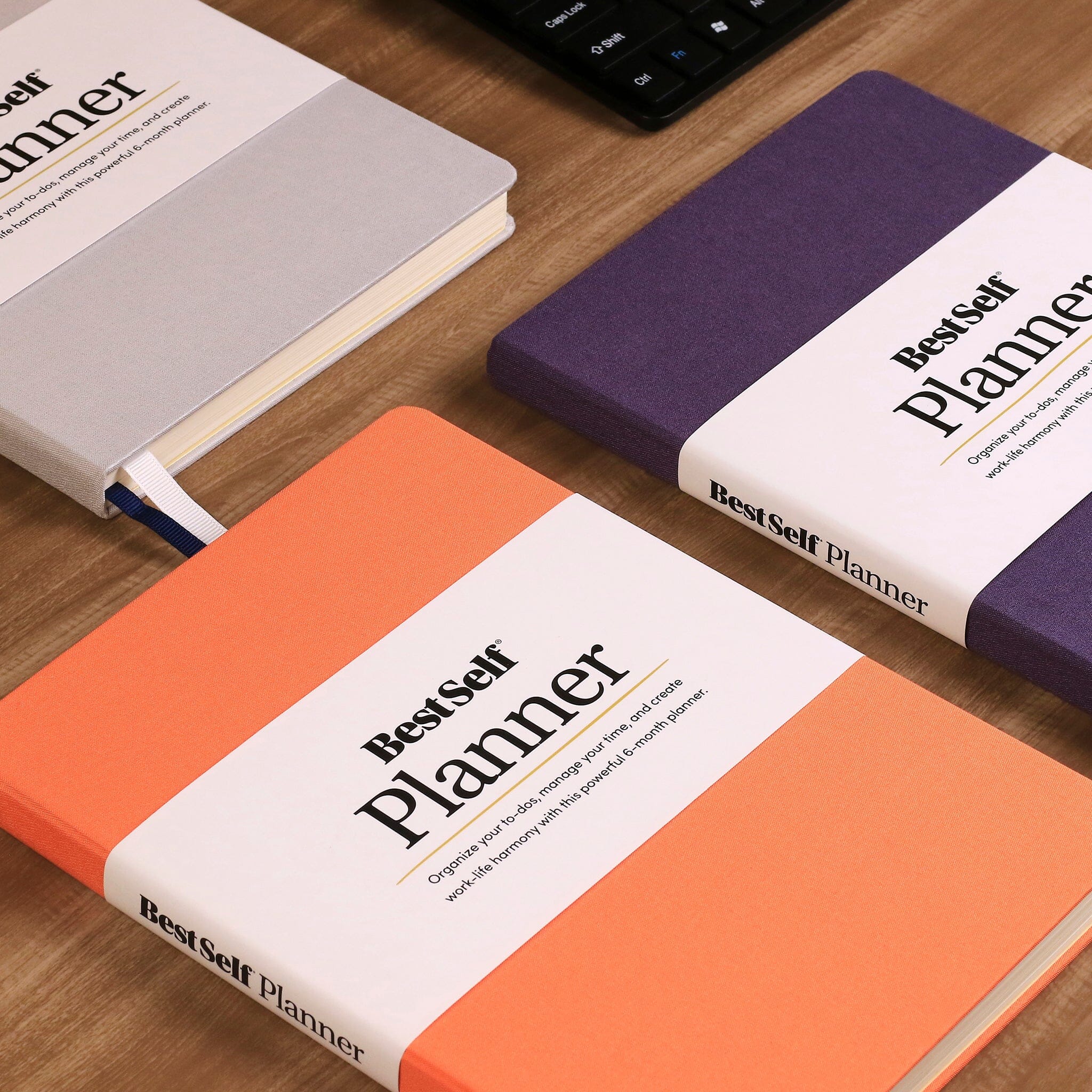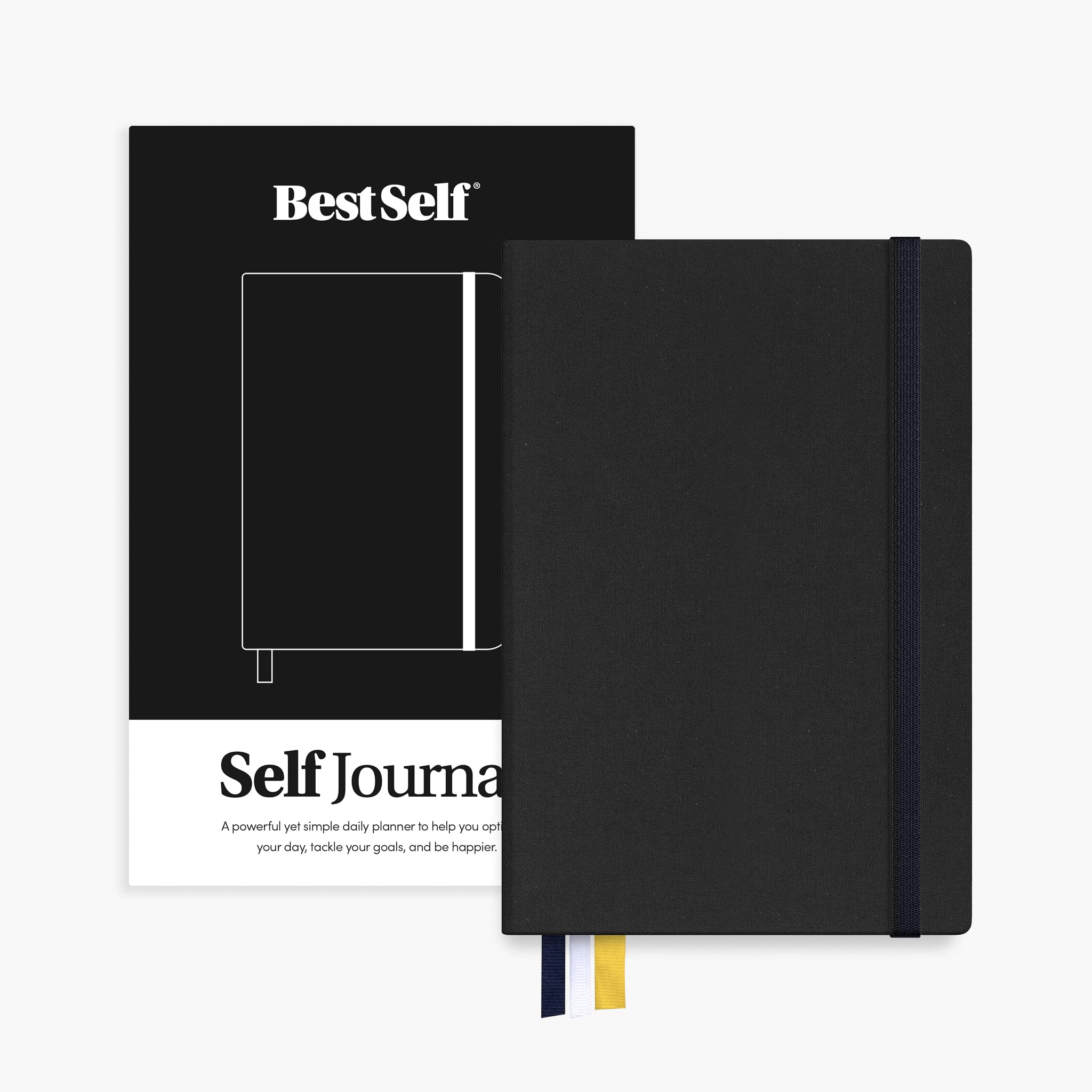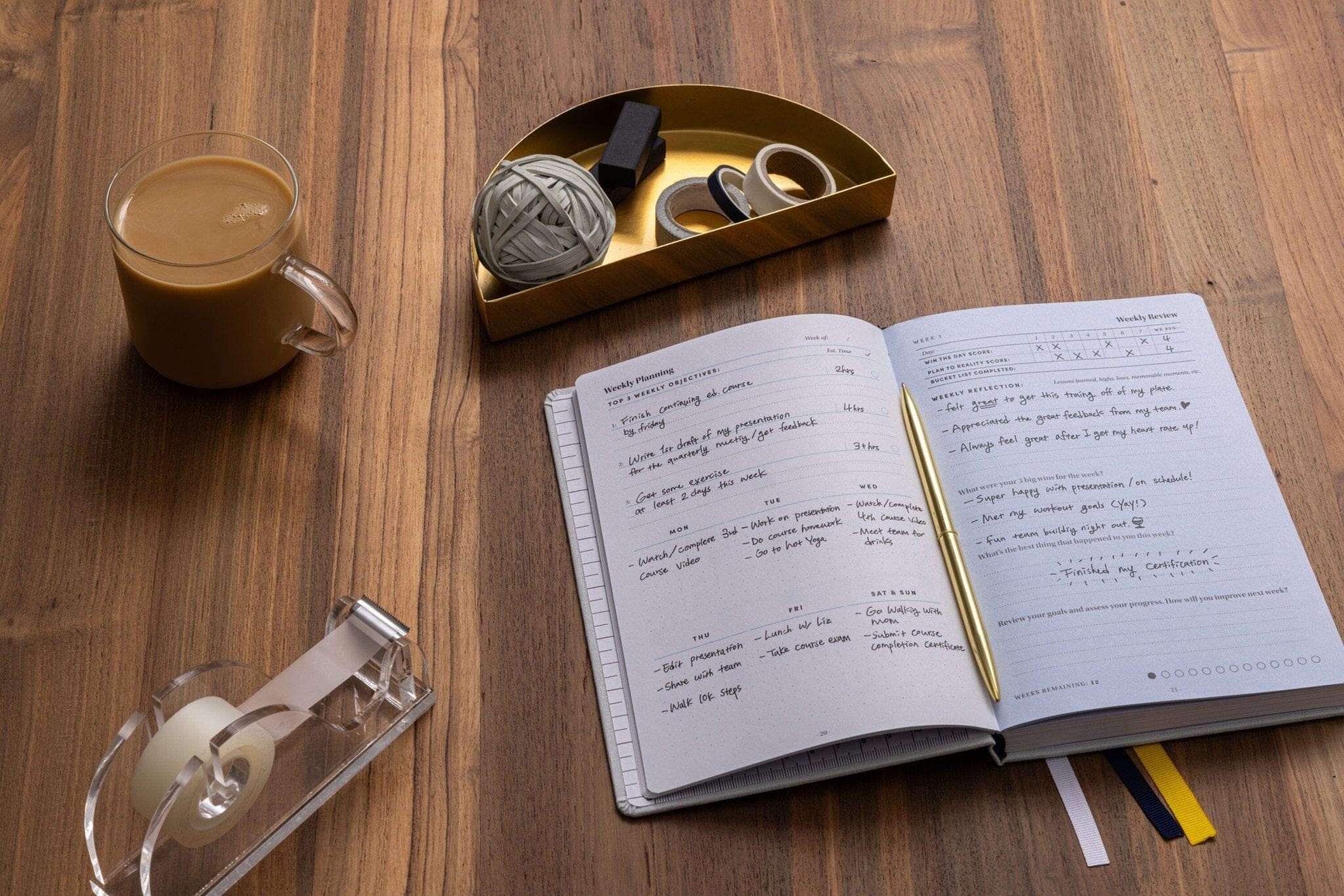Cathryn (00:03):
Welcome to the first week of your Relationship Journal Companion Course. Firstly, congratulations on taking this first step towards building a stronger, more intimate relationship. Like I mentioned in the intro video, this course is designed to give you added tools and resources for getting the most out of your 13-week journey so that you can get everything out of the exercises and know why we did it the way we did it. Each week. Rachel Wright, a licensed relationship and sex therapist, and I will discuss topics around each week's exercise. We'll tell you why we created it, why it's so important and how to better complete the exercise if you have any questions. You'll start the Relationship Journal journey by assessing the current state of your relationship. This relationship snapshot will provide a point of reference for you to understand how your relationship has grown over the course of the next 13 weeks. If we measure where you are right now, you'll better understand the progress that you have made at the end of this journal. So let's jump into the conversation behind the relationship snapshot, why it's important with Rachel Wright.
Rachel (01:16):
All right, Rachel, it's so great to have you here. Thanks for being here. And before we jump into questions that everyone wants to hear first, tell us about yourself.
Rachel (01:24):
First of all, thank you so much. I'm so excited to be here even like this. I'm a licensed marriage, family therapist and sexologist and sex educator. And my focus is really on helping people gain the skills that we need to identify our emotions, communicate our emotions and have the best life, mental health, sex, and relationships possible because we all know that they're very intertwined. So I'm really excited to bring all of my clinical and academic experience here. And I'm just really honored to be co-creating this with you. Thank you for having me.
Cathryn (01:58):
Of course. It's really great to have someone working on relationships because you know, we see how important they are for people's well being and how are you your best self if you're not in a fulfilling relationship. So let's just jump right into it. Cause I'm sure that's what people want to talk about. We have a bunch of questions that we want to ask and see where it takes us. But the first one is what are some things that couples can consider as they start out on this intentional journey together?
Rachel (02:25):
Oh, I love this question. So as human beings, we're so lazy and we don't like to do things unless we understand why we're doing them. It's why little kids are constantly asking why. And we're like sshh sshhh sshh, but we want to know why. And that's because our behavior is motivated by our emotions. And so we want to understand what's going on. So my advice here would be to sit down and really understand each other's why before embarking on this together. So like, why is it important for you as an individual? And then why is it important for you in relationship with this other person? That would be where I would start.
Cathryn (03:06):
I think that's super important. I think sometimes when, you know, you bring up this topic of, "Oh! Relationship Journal," it's like, "Oh, what's the problem? Like, why do we need this?" And I've seen that with couples I've talked about this product with, and one thing that I tried to tell people, I was like, "If someone comes to you with this, it's usually because they want to invest in the relationship. Not because they're trying to tell you, you know, a secret sign that they're, you know, running away." It's like, why would someone buy this product and put in this work if they weren't trying to invest. And I think people needed to look at this, not as a signal something's wrong, but a signal something's right. And they want it reinvest into it and put more time into making it even better.
Rachel (03:47):
I agree with that wholeheartedly. And I think it's really insane that in our culture, we view working, working on our relationships in general, whether they're friendships, familial relationships, romantic relationships, sexual relationships, we view it as like there has to be something wrong to work on it. Where really like you were saying, relationships are such an integral part of our overall well being that why wouldn't we want to intentionally work on them. And just like we would work out in the gym or, you know, eat well. Like we need to nurture and take care of our relationships. And we don't know how, which is insane.
Cathryn (04:24):
Yeah. It is funny when someone would hire a personal trainer, you know, then nobody's like, "Oh God, what's wrong with them?" But go to a, you know, a marriage counselor or some sort of relationship where it gets like, "Oh, something must be wrong." And I think one of the things that we wanted to do with this product is to teach people, okay, what are the sort of things that we can put in place? The rituals we can put in place to help our relationship without it feeling like it's a lot of work. Because if you start earlier in relationship, when you don't really need it that much, you're not trying to... It's like when you buy a car and you don't fix it for 20 years, there's gonna be a lot of stuff wrong with it. And it's going to take a much longer than if you just did a little maintenance every, you know, once a year, every year.
Rachel (05:07):
It's so funny you say that, Cathryn, because I use that analogy whenever I'm talking to a couple. Whenever, if they say, well, there's nothing wrong, you know, she thinks there's something wrong or they think there's something wrong in the relationship, but there's nothing wrong. Like what would you take your car in every three months, if that's what you were supposed to do, even if there was nothing wrong. And they're like, yeah, of course, like, do you go to the dentist every six months? Even if there's no pain and there's nothing wrong. Well, yeah, of course. I don't want to get cavities. Okay. Yeah, let's do that here. Yeah. So taking this proactive approach, it's so much better. We can't learn. We're not really good at learning new skills when we're in crisis. So it's not like the time to learn how to communicate when there's something already like really scary or yucky or hard going on. It's so much easier when things are lovely and wonderful. And like you said, you can invest, you know, 15 minutes here, 10 minutes there and just come together in that way.
Cathryn (06:06):
Yeah. So this kind of leads me to the question of assumptions. So assumptions can, you know, destroy relationships in some, in some ways, but why do we always assume we are all on the same page with our partner just because we are a couple?
Rachel (06:23):
Society tells us that we should be which is hilarious because I don't care how long you've been with someone we're always growing and evolving as individuals. And they're always growing and evolving as individuals and even something as simple as I didn't like avocado when we met and I like avocado now, that's still a change. And if my partner doesn't know or recognize that I'm going to feel not as seen by my partner. And so as we evolve and grow, we got to communicate that instead of just assuming that our partner is like the static version of who they once were, because that's insane when we actually think about it. The thing with assumptions though, is that we are taking away our partner's ability to consent. And I think that we often like joke around with assumptions. Like, "Oh, it makes an ass of you and me." And like, you know, we have all these phrases, but like really what we're doing is deciding for the other person and whether that is what we're going to have to eat or where we're going to live, nobody wants that decided for them, you know? So I I'm, I'm a big fan of if you're having an assumption, even if you state it, as I'm assuming you want Mexican food tonight, am I correct? Like even asking in that way is still better than just we're having Mexican food. Of course they want that.
Cathryn (07:51):
Yeah. I think assumptions or just questioning your assumptions. Cause then a lot of areas in life, a lot of successful people have gotten where they've gotten, because they've questioned something that's done, you know, a standard way all the time, but they are like, "Oh, why is it done that way?" And then they maybe changed it. And so that could be the same in relationships. So something in my relationship at the beginning of my relationship, you know, we talk about this later in the Relationship Journal with another activity, but I want to bring up here this idea of assumptions. So my wife and I deal with stress completely differently. So when I'm stressed, I want to be left alone. I want to problem solve by myself. Like really think about it and mull it over and journal about it maybe. And my partner wants to be like problem solving together once, talk it through once, you know, bring tea and coffee and like just smother...
Rachel (08:41):
Pow wow
Cathryn (08:42):
Yeah. And so at the beginning of our relationship, well, what happened is when one of us got stressed, we would assume that the person wanted to be treated, how we would like to be treated. So I would just leave her alone and she would smother me whenever I'm stressed. And it was us just assuming that we wanted what the other, what that was also assuming that the other person wanted what we would like in that. And it would cause more friction. And then the stress that we were already dealing with and it wasn't until later in the relationship, then we realized, "Oh, we just assumed that this is how it would be," and you have to train yourself. "Oh, I have to not assume that. And I have to do what they would like in that moment." And so that was one of the ways where us assuming got us into more trouble than we even expected.
Rachel (09:32):
I love that story because it's so easy to be like, what are you doing? And it's coming from the best place and it's really not helpful if it's not helpful. And that kind of comes back to the first question of like, understanding why you're watching this video and why you're working with this product. Like, what is your partner want to get out of it? What do you want to get out of it? Why are you doing it? And not assuming that, you know, why they purchased this or why they want to do it. Because we go to a lot of dark places too. Like we tend to assume way worse things than how things actually are
Cathryn (10:11):
For sure. Now with the relationships snapshot and other idea around assumptions is you're sort of seeing where you are in different parts of your life. And I think another assumption that you could make is that you have the same level of importance or different areas of your life when that might not be the case. And so when you're going through this exercise, I want you to both like, you know, see where you are on different parts of your life, but also like how important is that in this state of your life? Because, you know, if you're in your twenties, your career might be much more important than, you know, I don't know, settling down and having a family, but if you're in your thirties, that will be completely different. And I want people to just take some time to sort of both understand where they are, but also how important if they're low on one scale, like is that important in where they are in their life so that you can be on the same page together with that as well.
Rachel (11:03):
I love that. And it just, it again speaks to, there's no right or wrong here. It's about understanding where you are and where your partner is and where you want to be. And it's really hard to understand where your partner is if we don't take the time to sit down and ask. And I laugh, I laugh because even as a couples therapist, I will forget to take the time to do that with my partners. And so if I'm forgetting and I'm teaching this and working with couples every day of my life, it makes a lot of sense that the general public would forget, right? Like it's in front of my face every day and I forget. So it's something like this is so helpful to, to build those rituals and to make it a muscle to check-in.
Cathryn (11:54):
Awesome. Okay. So we've checked in, we're looking at our relationship's snapshot compared to our partner's and we see things that are out of alignment. How would you bring up sort of a challenging conversation with your partner to discuss, "Okay. Something that I thought was great, you have as very low on your scale." Like how do you approach that conversation?
Rachel (12:17):
So I think there's two pieces to that conversation. And one is actually having the information. And then two is the emotional piece of receiving that information. Because it is important to acknowledge the similarities and the differences, and there's going to be an emotional response to both. And so I think being able to name let's look at this first as like objective data and then let's talk about how we feel about it. Rather than mushing those together and be like, "You're not happy with this. What are we going to do? I'm going to..." Like, don't freak out. We have so many exercises coming up and discussions about hard conversations and conflict and like all of that stuff. Just acknowledge where you're aligned, where you're not, it doesn't mean anything good, bad, right wrong. It just is. And then if you have an emotion come up around it, use that as an opportunity to flex the muscle of identifying what that emotion is and expressing it. So "I feel scared that I thought our sex life was great. And you think it's not." Right? Like even something as simple as that is open, it's vulnerable and it's communicating your actual emotions. Not, "I feel like you maybe put the wrong answer on that one." You know, it's like, it's really about your feelings.
Cathryn (13:46):
Yeah. And it's not the whole purpose of this is to be honest and not punishing if the other person is honest, because that's the first step of trying to get on the right page is knowing where they are. If they just put, you know, 10 for everything you would be in a worst place. Because first of all, they're not honest with you. And that's a bigger problem because they're scared to be honest with you and you're not going to get any better. If that's the way you, you sort of treat this exercise.
Rachel (14:13):
Yeah. 100%.
Cathryn (14:16):
Okay, great. So now that we've kind of gone over how to approach these challenging conversations, what are some common communication challenges that you've seen with couples as they navigate these sort of exercises?
Rachel (14:31):
You know, because we're not taught how to communicate. No one really knows how to communicate and we're all just doing the best we can. So I want to name that. That just, like you didn't miss a class, you didn't ditch that day, like there was no class in how to communicate in relationship. And hopefully this will help with that. But some of the most common challenges that I see as simply that it's like communicating our feelings, being able to hold space. There are things that knowing how to listen to someone is a skill, right? Like people go to school to literally learn how to listen. And we don't teach the general population what being a good listener means. And so the common challenges that come up are all just symptoms of the fact that nobody knows what the heck they're doing. That's it. And I really want to name that because I think that so much shame comes up for folks when embarking on things like this, of like, "That's so simple. How did I not know that? Or wasn't I supposed to know this? Or we've been married for X amount of years. I should have known X, Y, or Z." Like there are no shifts here. Just start fresh and learn what you're learning today. And that's it.
Cathryn (15:55):
Awesome. Well, you heard it from the expert and I want you to take some time, do your relationship's snapshot and below this video, if you want to leave any comments about something you learned about your partner that you didn't know, or maybe an approach that you took to this exercise that started off maybe a little challenging, and then by the end, you actually knew each other better, please let us know in the comments and enjoy completing your relationship snapshot.
New Speaker (16:19):
All right. It's time to jump into your relationship exercise. If you haven't already make sure that you've read the guide book together up to page 28. Once you've done that, you're ready to start Week 1 in your Relationship Journal. And we will see you here next week.













